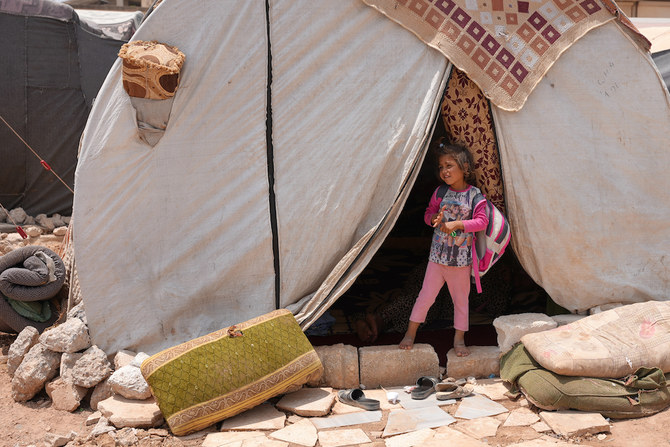
- ARAB NEWS
- 25 Apr 2024

NEW YORK: The recent diplomatic moves on Syria need to be matched with real action, the UN special envoy for Syria told a Security Council meeting on Tuesday.
Geir Pedersen said the Syrian people continue to suffer “on a massive scale,” and “while they have observed recent diplomatic developments, they have not yet seen any improvement in the reality of their lives, whether they live inside Syria or outside Syria.”
Only “confidence building (measures) on the ground” and the resumption of the political process to end the war would signal that “the current opportunity has been seized.”
Pedersen welcomed the recent dialogues with the Syrian government that took place in Amman, Jeddah and Moscow, which focused on several key issues. These include the humanitarian situation and safe access for aid delivery, a dignified and voluntary return of refugees, reconstruction, restoring Syria’s sovereignty and territorial integrity, and countering terrorist groups.
He said these were all concerns at the heart of UN Resolution 2254 and “common attention to these themes and points could present a real opportunity to move forward.”
If such issues begin to be addressed, even if incrementally, Pedersen said this new dynamic could create a “much-needed momentum.”
He said he “can only welcome” the recent intensified regional consultations and work in the direction of finding ways in which to unblock progress on Syria.
“After all, even minimal progress on some issues of resolution 2254 would require the confidence and resources of many different players and serious actions too.”
This month has seen the Arab League officially welcome Syria’s government back into its fold. This ended over a decade of exile from the pan-Arab body over President Bashar Assad’s crackdown on protests which spiraled into a war that killed more than 500,000 people and displaced millions.
Pedersen said that he reiterated, during his engagements with Syrian, regional and international interlocutors, his appreciation of “the dangers of the status quo, both for the Syrian people and for regional and other actors, who want to curb instability emanating across Syrian borders, including from narcotics, and who continue to host millions of Syrian refugees.”
In order for there to be real confidence building and a serious resumption of the political process, however, Pedersen emphasized the importance of work toward a safe and dignified return of Syrian refugees, that takes into account their security and economic fears.
Attention to this issue is important “because it tells us that if the Syrian government were to start to address in a more systematic manner the protection concerns of the displaced, working closely with the United Nations, and if donors were to help the United Nations to do more to address the concerns all Syrians have about livelihoods, then this could help to do what we all say we want to do — build confidence, and begin to change realities on the ground for all Syrians — not only the displaced.
“It could help bring about movement towards a more safe, calm and neutral environment in Syria, and it could help alleviate hardship inside the country.”
The UN envoy also emphasized that addressing the fate of over 130,000 missing people and detainees in Syria’s prisons remains a “core issue for moving forward in Syria.”
“It is hard to see how there could be genuine confidence-building without some progress on this issue, which impacts nearly all Syrians and is fundamental to families, communities, and repairing Syria’s social fabric.”
He urged countries to support the UN’s efforts toward the establishment of an institution dedicated to the search for missing Syrians.
Ghada Eltahir Mudawi, deputy director of the UN Office for the Coordination of Humanitarian Affairs, told the Security Council that Syria must remain a “global priority.”
Over 70 percent of Syria’s population is now in need of humanitarian assistance. For the first time in the history of the conflict, 15.3 million people, across every sub-district in Syria, are experiencing some degree of humanitarian stress, Mudawi said.
The twin earthquakes earlier this year have added to this dire humanitarian situation, displacing more than 330,000 people and leaving thousands more without access to basic services and livelihoods.
She called for greater solidarity and urged countries to increase humanitarian funding, adding that while efforts are ongoing to reach a political solution “we must ensure that the urgent needs of women, men and children of Syria — life-saving aid and early recovery — are prioritized and adequately resourced.”
“They are counting on your support to stay the course,” she told council members.